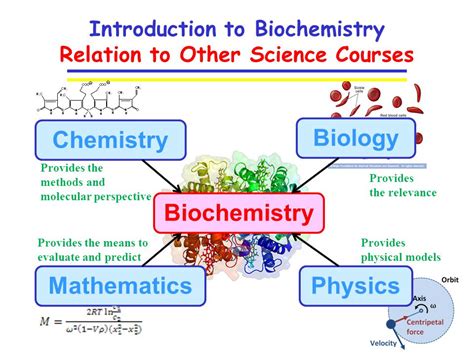Biochemical vs Chemical: Delving Into the Fundamental Distinction
The vast world of science encompasses a myriad of disciplines, each exploring specific aspects of our universe. Among these disciplines, biochemistry and chemistry stand out as two interconnected yet distinct fields, delving into the realms of life and matter, respectively. While both share a common ground in investigating the fundamental building blocks of existence, they diverge significantly in their focus and methodologies. This article will delve into the intricacies of biochemistry and chemistry, highlighting their differences and exploring the fascinating applications that stem from their unique perspectives.

Biochemistry
Biochemistry is the scientific discipline that investigates the chemical processes and substances that occur within living organisms. It focuses on understanding the structure, function, and interactions of biomolecules, such as proteins, carbohydrates, lipids, and nucleic acids, which are the fundamental components of life. Biochemists seek to unravel the intricate web of biochemical reactions that govern cellular processes, metabolism, and the overall functioning of organisms.
Chemistry
Chemistry, on the other hand, is a broader discipline that encompasses the study of the composition, structure, properties, and transformations of matter. Chemists investigate the elements and compounds that make up our universe, including both organic (carbon-based) and inorganic (non-carbon-based) substances. They delve into the principles of chemical bonding, reactions, thermodynamics, and kinetics to understand the behavior of atoms, molecules, and materials.
The following table summarizes the key differences between biochemistry and chemistry:
| Feature | Biochemistry | Chemistry |
|---|---|---|
| Focus | Living organisms and biomolecules | All forms of matter, both organic and inorganic |
| Main molecules studied | Biomolecules (proteins, carbohydrates, lipids, nucleic acids) | Elements, compounds, and materials |
| Perspective | Molecular basis of life | Fundamental properties and transformations of matter |
| Applications | Medicine, biotechnology, agriculture | Materials science, pharmaceuticals, energy |
Despite their distinct foci, biochemistry and chemistry intersect in several areas, giving rise to exciting applications.
Bioinorganic chemistry: This field explores the role of metal ions in biological systems, essential for processes such as oxygen transport and enzyme catalysis.
Organic chemistry: Organic chemistry deals with carbon-based compounds, including many biomolecules. It plays a crucial role in drug development and the synthesis of new materials.
Chemical biology: This emerging discipline combines techniques from both chemistry and biology to study biological processes at the molecular level. It enables the development of novel therapeutic approaches and research tools.
Biochemistry
- Medicine: Biochemistry contributes to the development of drugs, diagnostics, and therapies for various diseases.
- Biotechnology: Biochemists engineer biomolecules for industrial applications, such as enzyme production and biofuel development.
- Agriculture: Understanding biochemical processes in plants and animals leads to improved crop yields and animal health.
Chemistry
- Materials science: Chemists create new materials with enhanced properties for electronics, construction, and medicine.
- Pharmaceuticals: Chemistry is vital for the synthesis and development of drugs that treat a wide range of illnesses.
- Energy: Chemists explore renewable energy sources, such as solar and fuel cells, to address global energy challenges.
Biochemistry and chemistry, while distinct disciplines, share a common goal of understanding the fundamental building blocks of the universe. Their unique perspectives and methodologies have led to a vast array of applications that improve our lives and advance scientific knowledge. As we continue to probe deeper into the complexities of life and matter, the interplay between biochemistry and chemistry will undoubtedly continue to yield groundbreaking discoveries and shape the future of science and technology.
